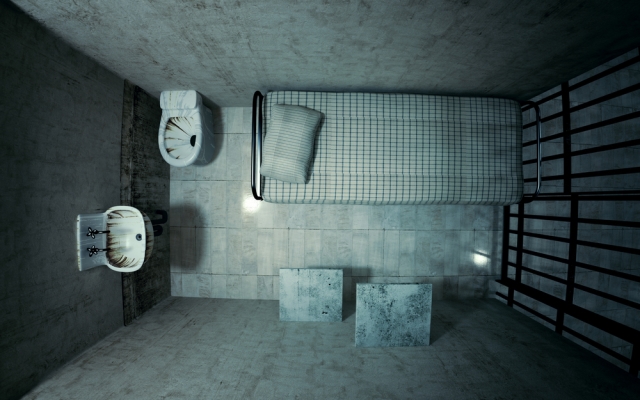The US Treatment Of Asylum Seekers Is Inhumane

Nebane “Neba” Abienwi fled five armed conflicts in Cameroon and trekked across eight South, Central and North American countries to try to save his life.
He thought the United States was a beacon of hope that would offer him and his family a future. Instead Neba died of an unknown cause after being jailed at a privately run center in California. He became the first black person ever to die in immigration jail.
Neba’s only breaths of free air were taken en route to the hospital, where immigration officials took him after he suffered an unexplained illness, USA Today reports. There, he died, the ventilator removed against the wishes of his family, who were still in Africa. They wanted a chance to say goodbye.
The number of asylum-seekers from Cameroon has more than doubled in recent years, as the Cameroonian government committed human rights atrocities and burned over 500 villages, including Neba's native Bafut. Neba, a brother, father, husband and “Chopchair” (a Bafut cultural title which translates to “successor”), did not want that for his family. He left to find them freedom, and instead, he died.

The U.S. government is compounding the tragedy of Neba’s death by refusing to grant his family a visa so they can come and claim their brother’s body. Cultural and religious traditions of the Bafut tribe typically require identification of the body by a spouse or next-of-kin and a series of rites to take place before the casket is sealed.
Freedom to practice one’s religious traditions has been a core value of our nation since its founding, and death practices in every faith tradition provide comfort and allow for mourning and healing. To disallow critical burial practices is traumatizing, and a violation of Neba’s family’s religious liberties.
This is happening despite the United States’ claimed commitment to the freedom to practice one’s faith. The Cameroon American Council works with the United States Commission on International Religious Freedom (USCIRF) and George Washington University’s Loeb Institute for Religious Freedom, among others, to ensure religious freedom is protected in word and in deed.

One example is the bipartisan Senate Resolution 292 on Cameroon, which strongly emphasizes respect for faith, as articulated by Republican Sen. Young of Indiana and Lankford of Oklahoma. Publication of the State Department’s Religious Freedom Report on Cameroon in 2018, inclusion of Cameroon in the State Department’s Ministerial to Advance Religious Freedom in 2019, and the Trump administration’s inaugural religious freedom forum at the 2019 United Nations General Assembly would seem to point toward respect for the Abienwi family’s spiritual and cultural burial rites.
But the Trump administration has already proved to be inconsistent on the issue of religious freedom, and has never treated Neba humanely. He came here in search of freedom and our government locked him up in a cage. He had an unexplained illness while in our government’s care and died.
The administration has also systematically eroded the asylum system so that fewer people can access this protection, despite growing human displacement around the globe.

The U.S. government rightly imposed restrictions on Cameroon’s national trade privileges due to ongoing human rights violations. It seems perverse that the administration would take steps to address human rights abuses abroad while committing them at home.
The U.S. government’s treatment of immigrants in detention is a massive human rights violation, with rampant physical violence, inappropriate use of solitary confinement, denial of access to due process and frequently substandard medical care.
Last month, members of the Congressional Black Caucus and House Committee on Foreign Affairs journeyed to San Diego for a field hearing on migrant detention and abuse. During the visit CBC Chair Rep. Karen Bass said, "Thousands of African and Caribbean immigrants who immigrate to the United States of America are treated as if they are invisible. They are an important piece of this story."
Nine weeks have passed since Neba's death, and Rep. Bass' words remain true. The Abienwi family still needs and deserves answers.
Follow us on Twitter. Feel free to comment on the blog and give us your valuable feedback.



Comments
Post a Comment